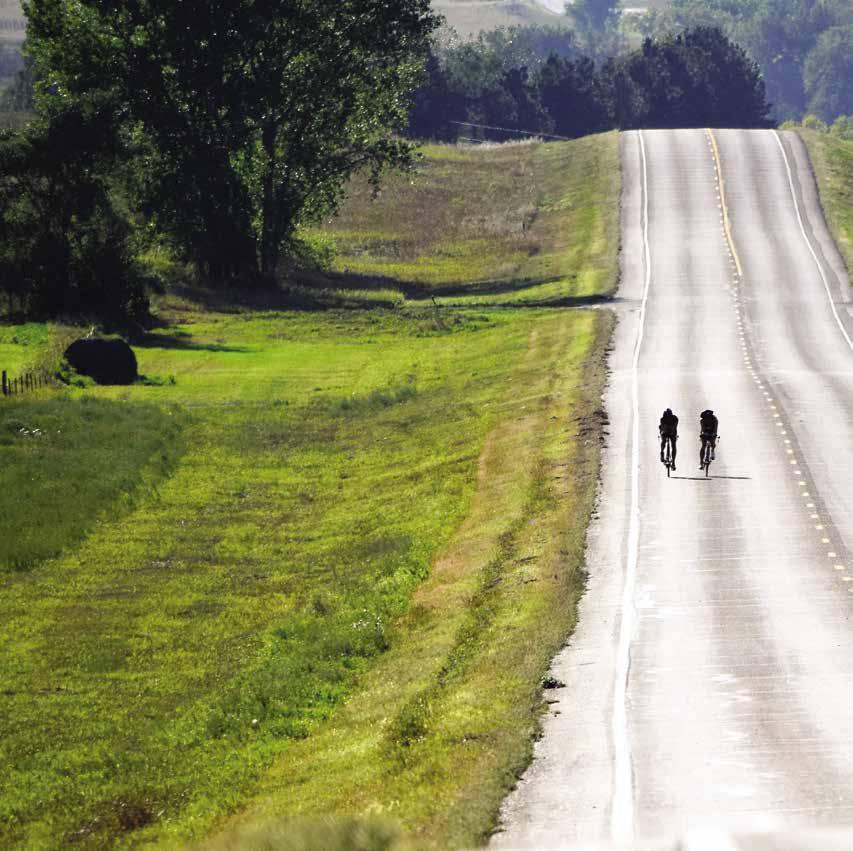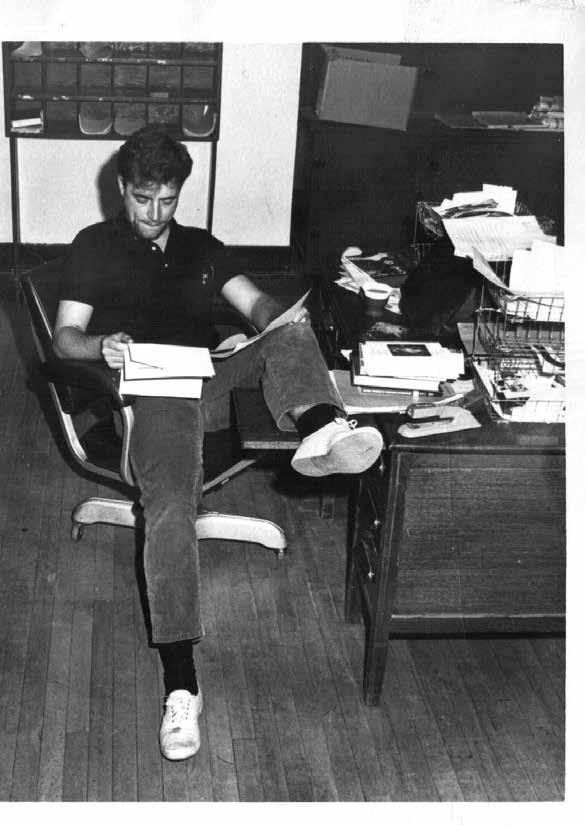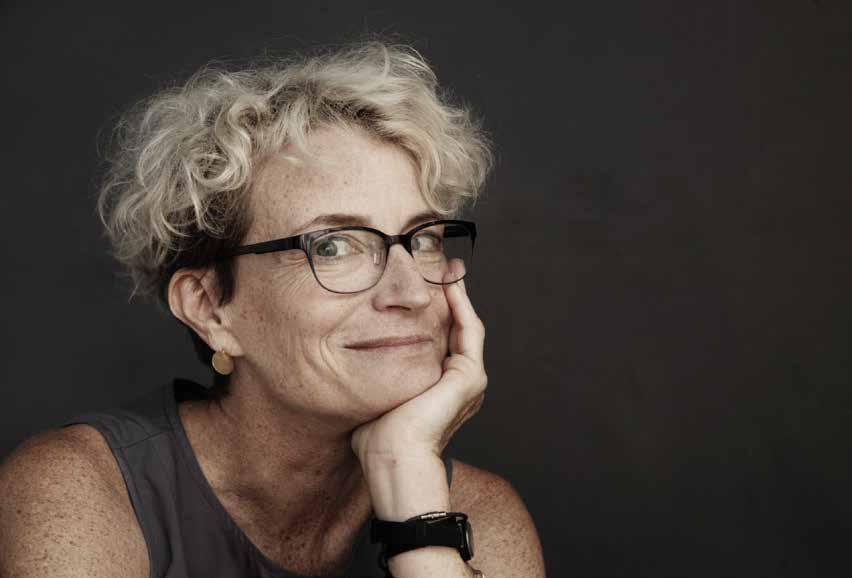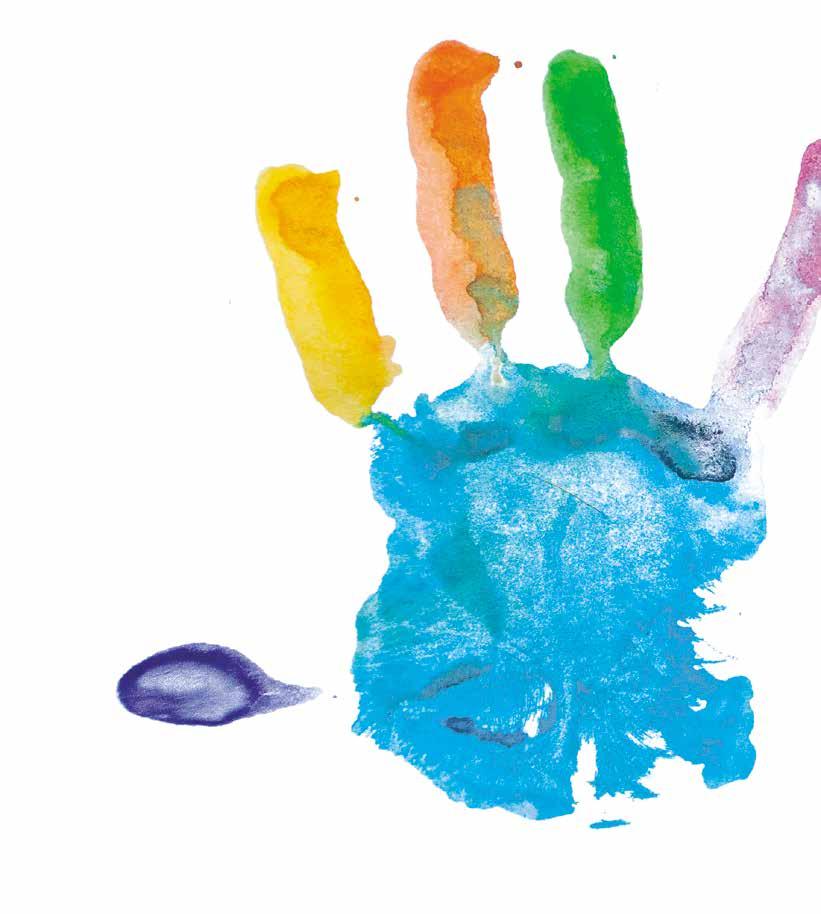
8 minute read
I Don’t Believe That Anymore
GameChanger Ideas Festival Thinker
KATE BOWLER
Advertisement

How does your view of your own success change in the face of a Stage IV cancer diagnosis? Are tragedies really tests of character, or simply misfortune? Kate Bowler, a divinity professor, young mother, and historian of the “American Prosperity Gospel” asks these questions and wonders how to continue to love life—and God—when confronted with an uncertain future.
At thirty-five, Bowler had become a professor at the school of divinity at Duke and a new mother when she received the earth-shattering diagnosis of Stage IV colon cancer. As she struggled to find the balance between optimism and delusion, she wondered how to accept her own finitude without feeling like she was giving up.
As she learns to live with cancer as a chronic condition, Bowler speaks powerfully about the ways in which her brush with mortality transformed her. She also frankly addresses the uniquely American concept that tragedy is a test of character, and looks at the different ways that people try to rationalize suffering and catastrophe, for better or worse.
Bowler speaks powerfully about the ways in which her brush with mortality transformed her.
AUTHOR OF Everything Happens for a Reason: And Other Lies I’ve Loved.
I DON’T BELIEVE THAT ANYMORE
by Kate Bowler
There’s a branch of Christianity that promises a cure for tragedy. It is called by many names, but most often it is nicknamed the “prosperity gospel” for its bold central claim that God will give you your heart’s desires: money in the bank, a healthy body, a thriving family, and boundless happiness.
I grew up on the prairies of Manitoba, Canada, surrounded by communities of Mennonites. I learned at my Anabaptist Bible camp about a poor carpenter from Galilee who taught that a good life was a simple one. Though most Mennonites abandoned bonnets and buggies long ago, they kept their concerns about the greediness of modern life. Everyone had a grandpa who once ruined a gleaming new car by painting the bumpers black to hide the chrome and knew that the most holy words outside of the Scriptures were “I got it on sale.” But when I was eighteen or so, I started hearing stories about a different kind of faith with a formula for success, and by twenty-five I was traveling the country interviewing the prosperity gospel’s celebrities. Eventually, I wrote the first history of the movement from beginning to end.
I spent years talking to televangelists who claimed spiritual guarantees for how to receive divine money. I held hands with people in wheelchairs praying at the altar to be cured. I thought I was trying to understand how millions of North Americans had started asking God for more. How they seemed to want permission to experience luxuries of life as a reward for good behavior. After all, the movement was best known in popular culture for Jim and Tammy Faye Bakker, the de facto King and Queen of 1980s televangelism. Their media empire toppled when Jim was convicted of financial fraud, and the scandal cemented in most people’s minds that the idea that the prosperity gospel was fundamentally about gold faucets, thick mink coats, and matching his-and-her Mercedes-Benzes.
And I did discover that the prosperity gospel encourages people (especially its leaders) to buy private jets and multimillion- dollar homes as evidence of God’s love. But I also saw the desire to escape. Believers wanted an escape from poverty, failing health, and the feeling that their lives were leaky buckets. Some people wanted Bentleys but more wanted relief from the wounds of their past and the pain of their present. People wanted salvation from bleak medical diagnoses; they wanted to see God rescue their broken teenagers or their misfiring marriages. They wanted talismans to ward off the things that go bump in the night. They wanted a modicum of power over the things that ripped their lives apart at the seams.
The prosperity gospel is a theodicy, an explanation for the problem of evil. It is an answer to the questions that take our lives apart: Why do some people get healed and some people don’t? Why do some people leap and land on their feet while others tumble all the way down? Why do some babies die in their cribs and some bitter souls live to see their great-grandchildren? The prosperity gospel looks at the world as it is and promises a solution. It guarantees that faith will always make a way.
I would love to report that what I found in the prosperity gospel was something so foreign and terrible to me that I was warned away. But what I discovered was both familiar and painfully sweet: the promise that I could curate my life, minimize my losses, and stand on my successes. And no matter how many times I rolled my eyes at the creed’s outrageous certainties, I craved them just the same. I had my own prosperity gospel, a flowering weed grown in with all the rest.
Married in my twenties, a baby in my thirties, I won a job at my alma mater straight out of graduate school. I felt breathless with the possibilities. Actually, it’s getting harder to remember what it felt like, but I don’t think it was anything as simple as pride. It was certainty, plain and simple, that God had a worthy plan for my life in which every setback would also be a step forward. I wanted God to make me good and make me faithful, with just a few shining accolades along the way. Anything would do if hardships were only detours on my long life’s journey. I believed God would make a way.
I don’t believe that anymore.
One moment I was a regular person with regular problems. And the next, I was someone with cancer. Before my mind could apprehend it, it was there— swelling to take up every space my imagination could touch. A new and unwanted reality. There was a before, and now there was an after. Time slowed to a pulse. Am I breathing? I wondered. Do I want to?
Every day, I prayed the same prayer: God, save me. Save me. Save me. Oh, God, remember my baby boy. Remember my son and my husband before you return me to ashes. Before they walk this earth alone.
I plead with a God of Maybe, who may or may not let me collect more years. It is a God I love, and a God that breaks my heart.
Anyone who has lived in the aftermath of something like this knows that it signifies the arrival of three questions so simple that they seem, in turn, too shallow and too deep.
-
Why?
God, are you here?
What does this suffering mean?
-
At first those questions had enormous weight and urgency. I could hear Him. I could almost make out an answer. But then it was drowned out by what I’ve now heard a thousand times. “Everything happens for a reason” or “God is writing a better story.” Apparently God is also busy going around closing doors and opening windows. He can’t get enough of that.
---
The world of certainty had ended and so many people seemed to know why. Most of their explanations were reassurances that even this is a secret plan to improve me. “God has a better plan!” “This is a test and it will make you stronger!” Sometimes these explanations were peppered with scriptures like “We know that for those who love God all things work together for good” (Romans 8:28). Except the author, Paul, worshipped God with every breath until his body was dumped in an unmarked grave. But I knew what they were saying. It would be nice if catastrophes were divine conspiracies to undo what time and unfaithfulness had done to my wandering soul.
Other people wanted to assure me that what I’d had was enough. “At least you have your son. At least you’ve had an amazing marriage.” I had been stripped down to the studs, and everything of worth that I had accumulated was being appraised with a keen eye.
I became certain that when I died some beautiful moron would tell my husband that “God needed an angel,” because God is sadistic like that.
This is what I thought sometimes. What people would say to the man with sandy hair and eyes I have loved since we were fifteen and thought we would never die.
I don’t think I knew enough about longing ten years ago, when I started investigating the prosperity gospel. I had just bought a little house with the man I love—filled it with books, IKEA furniture, and a soft dog with legs as stout as soup cans. I was steeped in the lore of eternal youth. My life was something I could mold, or at least correct with a surge of determination. It was the same unlimited confidence that the prosperity gospel calls “victory.” (And I might have chalked up my successes to my own hard work and a little luck.) Nothing was broken yet that could not be fixed. But what gives the prosperity movement breadth and depth for many is its thorough accounting for the pain of life, and for the longing we have for restoration. Those Americans trapped in failing bodies or broken relationships or the painful possibility that their lives might never be made whole can turn to this message of hope. If it is a game—with rules for success that anyone can use—then maybe they can win.
I wish this were a different kind of story. But this is a book about befores and afters and how people in the midst of pain make up their minds about the eternal questions: Why? Why is this happening to me? What could I have done differently? Does everything actually happen for a reason? If I accept that what is happening is something I cannot change, can I learn how to let go?
Excerpted in part from Everything Happens for a Reason: And Other Lies I’ve Loved by Kate Bowler. Reprinted with permission. Copyright © 2018 by Kate Bowler.








